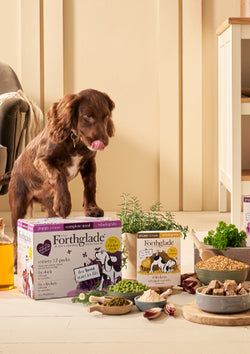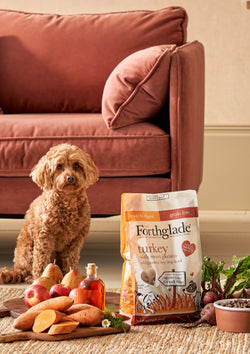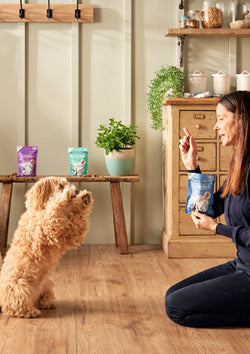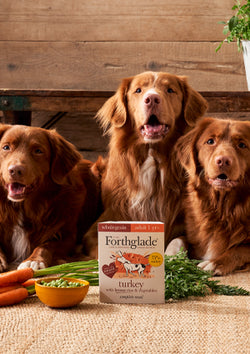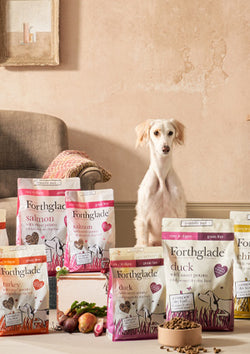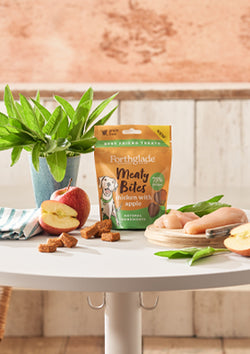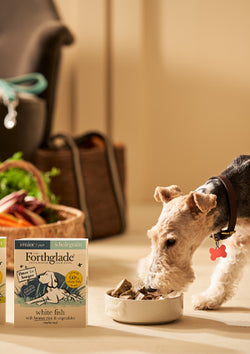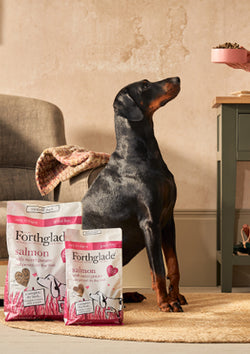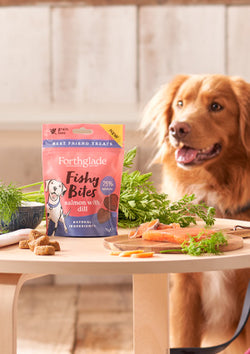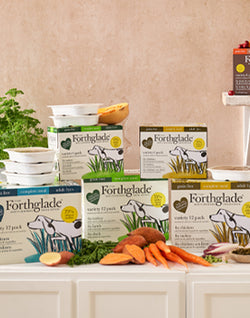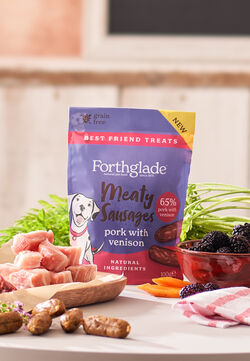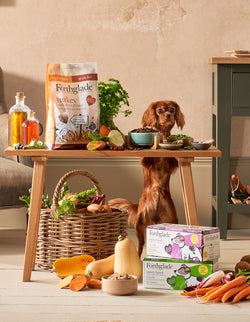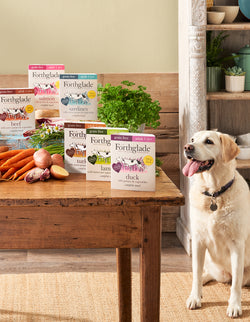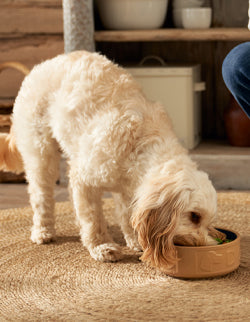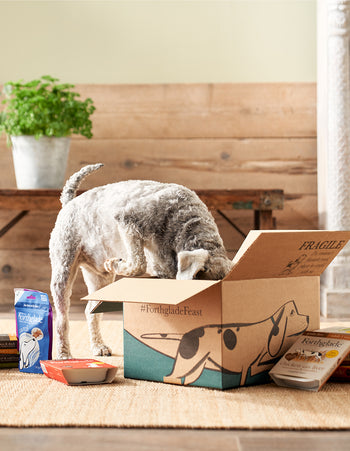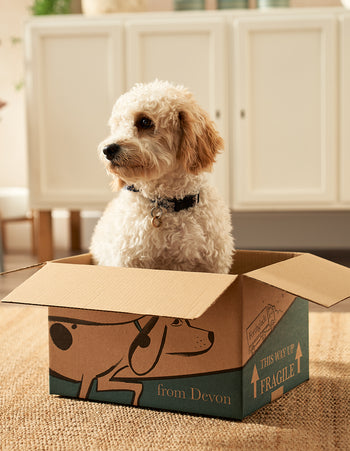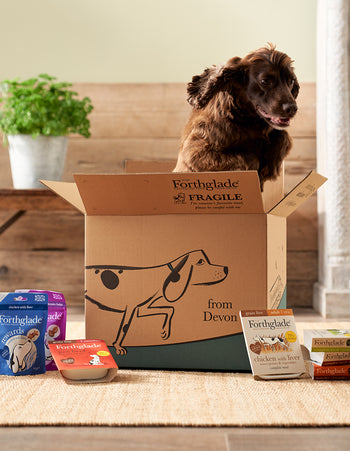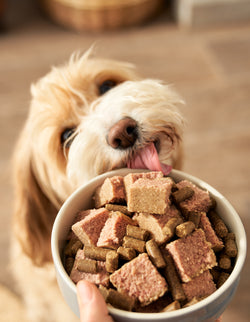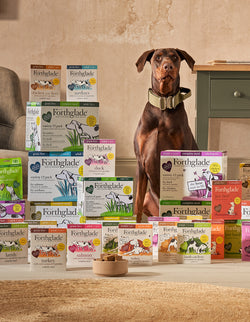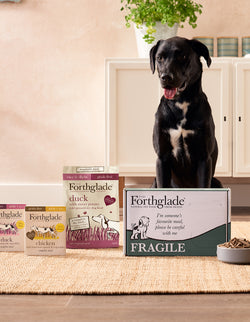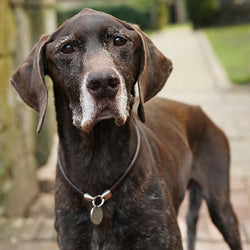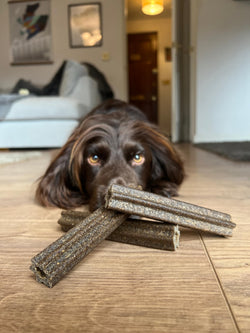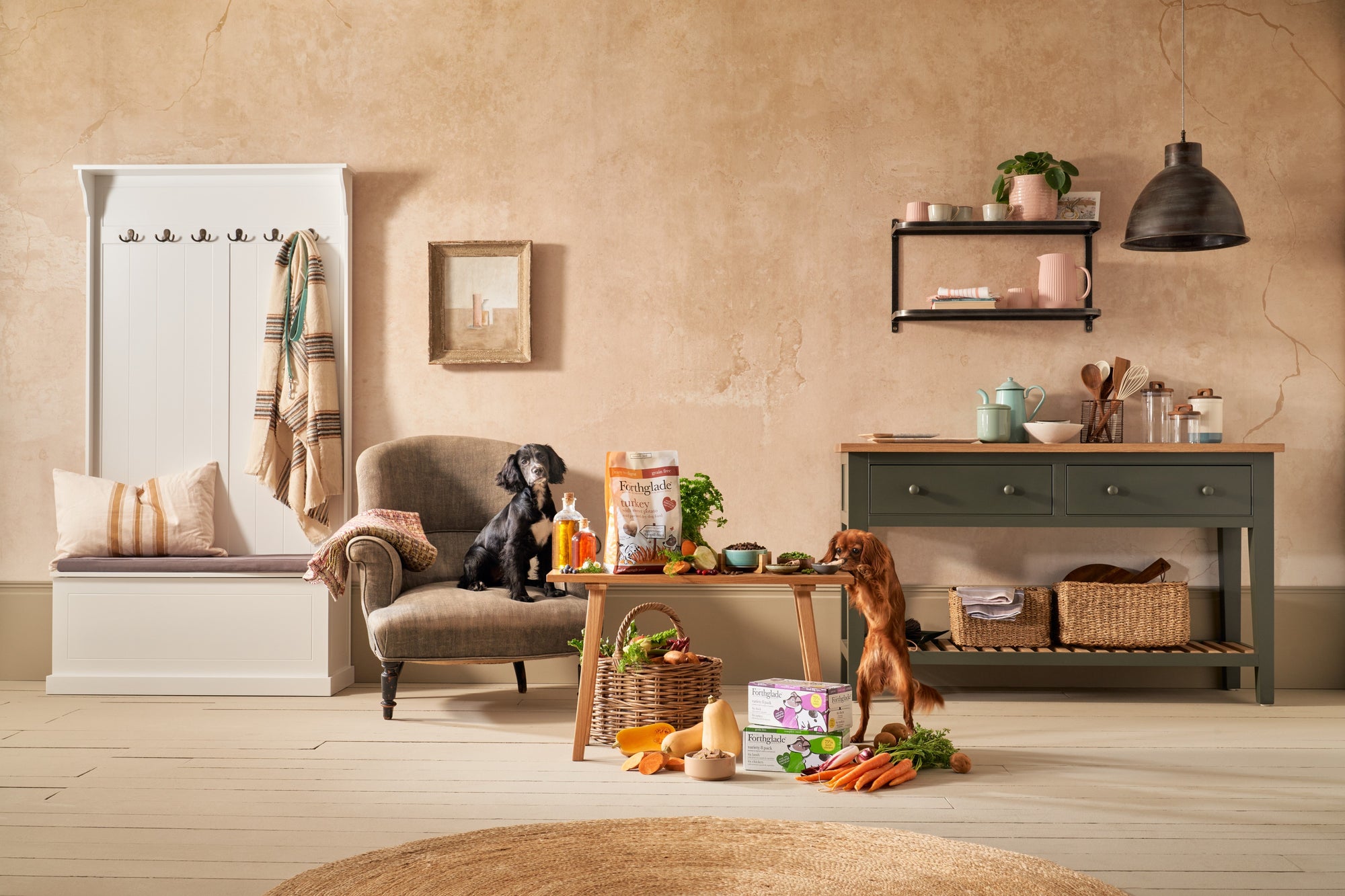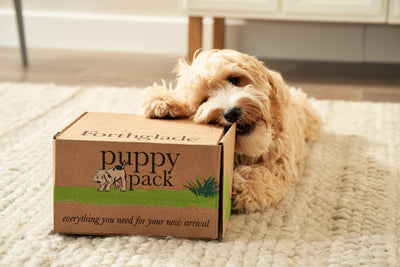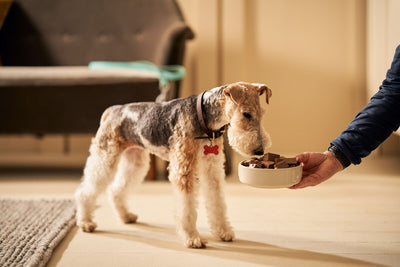We’ve partnered with the National Trust to launch the the Dogs Welcome project, an initiative that will help dogs and owners get even more out of the fantastic places that the Trust care for. From introducing more dog-friendly trails, dog waste bins, wash down areas, and drinking stations, the Trust will be taking several steps to ensure dog owners and their pups can plan a great day out together.
We caught up with Forthglade and certified animal behaviourist, Caroline Wilkinson for some top tips on planning for a perfect dog walking adventure.

Preparation is Key
Doing a little preparation work in advance of a day out with your dog can make all the difference to ensuring a great day. Thinking about the type of terrain you’ll visit, refreshments needed for you and your dog, to check if livestock may cross your path, or to plan in areas where your dog can enjoy some off-lead time.
If your dog isn’t used to long car journeys, start to slowly build up the frequency of going out in the car. If they usually sleep in a crate or pen but you can’t take it with you, you could get them used to a pop-up travel crate to try out.
If your dog hasn’t been out for many meals with you, practice having on-lead “pub lunches” in your own garden. Teaching your dog to settle on a specific mat or blanket can also be good practice for calmly relaxing during human mealtimes - you can then take this with you when you go out.
Consider writing a list of things not to forget, collars with ID tag, long and short lead if useful, healthy treats to encourage and reward good behaviour, dog bowls, poop bags and perhaps toys to keep them busy.
Adventures with Puppies
With many owners welcoming new puppies during lockdown, adventures out and about may have been limited. As a result they may feel daunted at the prospect of day trips with a young dog. Creating positive early new experiences can be a good way to set a dog up for a lifetime of successful adventures! Try to take a relaxed approach and don’t cram the day with too many activities. All dogs need lots of quality sleep to be calm and comfortable, but puppy owners should be especially mindful of balancing fun with sleep!
Home from Home
Going on staycations can bring many new experiences for dogs, starting with living in a completely new environment! Pack items that will make your dog feel more comfortable in these new environments - their own bed (full of familiar smells), their usual food, and some of their favourite toys. You may find your dog is a little less comfortable sleeping in a room on its own in this new environment, so support them by moving their bed closer to where you’re sleeping.
Seek Out Calm Spaces
We all want to be able to switch off and enjoy the calm that being out in nature can bring. Consider avoiding the busy local beach - any other holiday hotspots - so that you can avoid the crowds. Seek out special off-the-beaten track walks or consider visiting a National Trust site to take advantage of the new ‘Dog’s Welcome’ initiative. Walking in quiet spaces, surrounded by nature will allow you to fully engage in your environment - and with your dog – you will both be happier and healthier for it.

Too Much of a Good Thing
While it can be tempting to share your lovely cafe lunches or ice creams with your dog, it may wreak havoc on their behaviour as well as their tummy! Too much sugar could leave you with a hyper dog who is much more likely to act up than be a calm companion for your day out or staycation. Adding too many new foods at once - especially when they’re not ideal for our dogs - can end up in multiple toilet trips… not very relaxing! Make sure you take your dog’s usual food and treats - or check with a local pet shop in advance to see if you can pick it up there. If staying overnight, it can also be useful to bring some of your own tap water from home or buy some bottled water to keep your dog’s tummy happy.
Solo Time?
If staying away, not all B&B’s or holiday rentals will allow you to leave your dog unattended so make sure you check what the rules are of the place you’re staying in advance. For some dogs, a little human-free downtime between all the new adventures can be gratefully received! But if your dog hasn’t been left alone in a new space before you want to make sure they’re not getting stressed. Never leave them alone within the first 24 hours as they won’t have had time to get used to the new environment. When you do try to leave them, if possible take a pet camera with you so you can check if they’re relaxing or stressing when left alone. If you see any stress signs, go back to them immediately. Not only do we not want to have stressed dogs, but you also want to avoid any damage to the place you’re staying in.
Safe and Calm Travels
One of the biggest areas of concern for pet owners when taking their dogs anywhere is that of car travel. It’s really important that we set our dogs up for success, by getting them used to longer periods of time in the car slowly in advance of any long trips. Make sure you have them safely secured in a crate or with a crash-tested car harness. Plan regular comfort breaks so they can have a toileting opportunity, stretch their legs, and have a nice sniff. It can be wise to feed a slightly smaller meal (or for some dogs no food at all) before you set off. Depending on the length of your journey, you can always give them a snack along the way.
Make Memories
One of the best things about days out, or staycations with your dog is the uninterrupted time you get together. Many pet owners find going on adventures with their dog strengthens their bond and provides the chance to really switch off and relax together. Phones are great for taking photos of highlights and scenery but try to avoid screen time whilst walking – the distractions can interrupt precious time with your dog.
The places the National Trust cares for are often popular spots for new adventures and the Dogs Welcome initiative helps dogs and owners get even more out of these fantastic places. Find out more about the Dogs Welcome Project here.

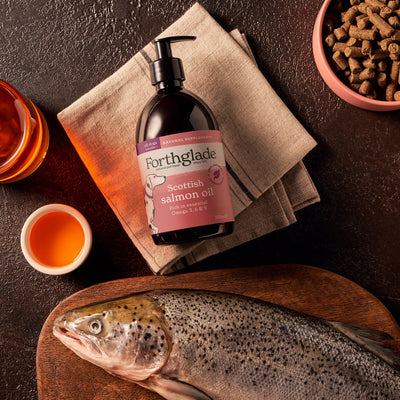


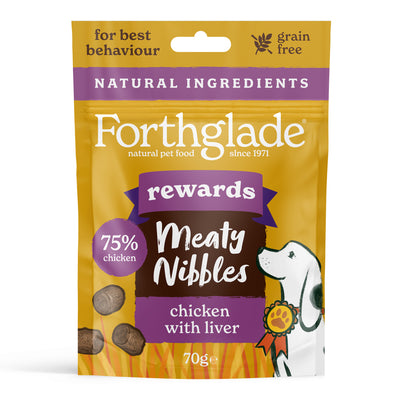
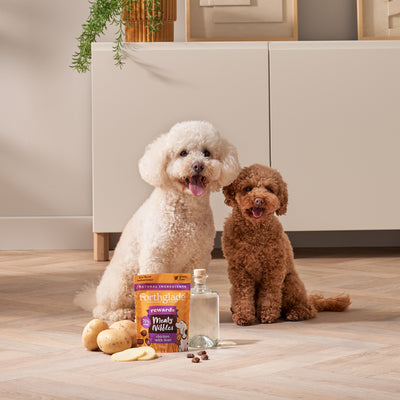






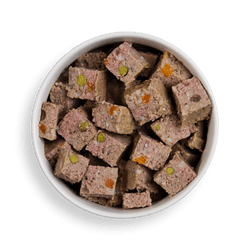

 Over 7,339 5* Reviews
Over 7,339 5* Reviews
 Established since 1971 - Made in Devon!
Established since 1971 - Made in Devon!
